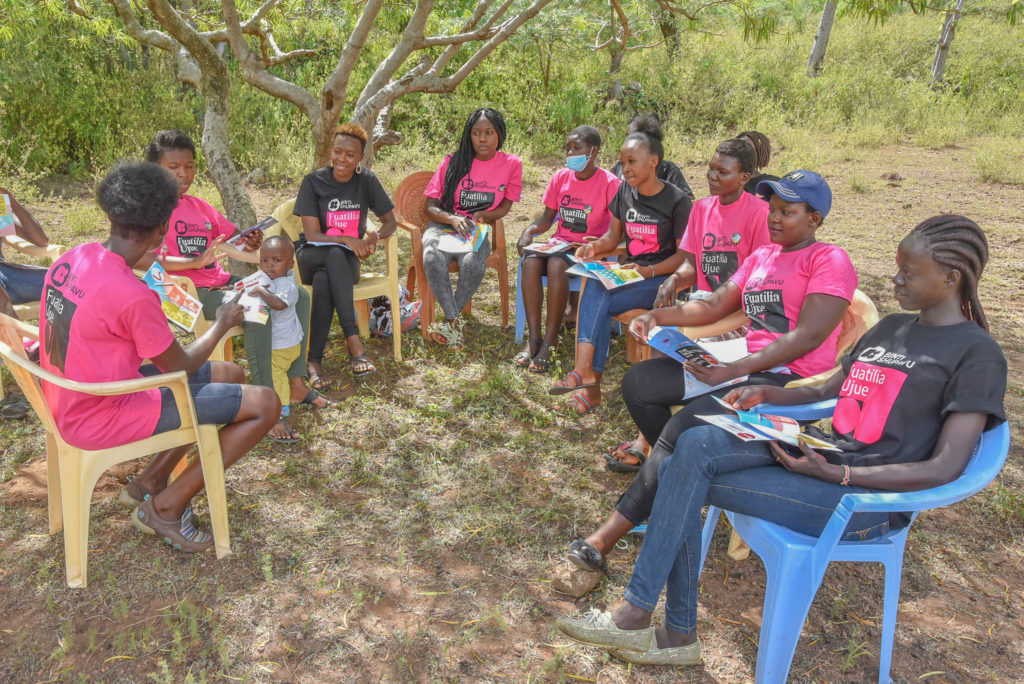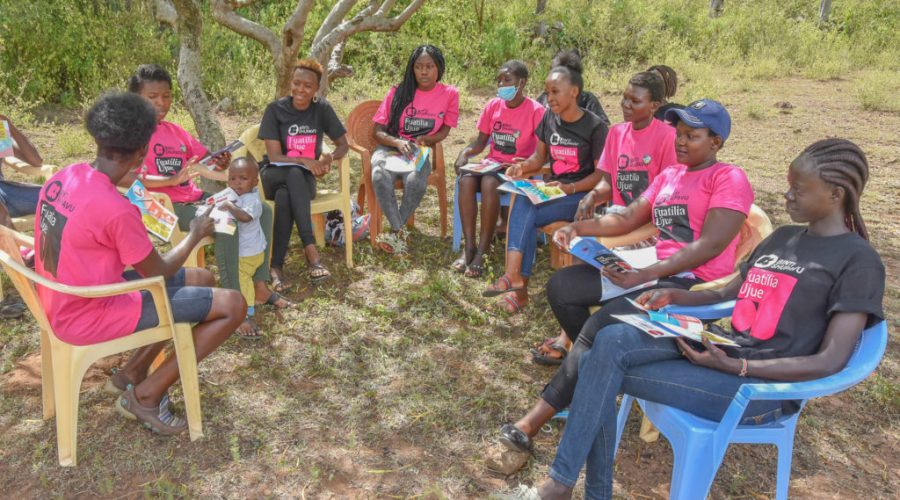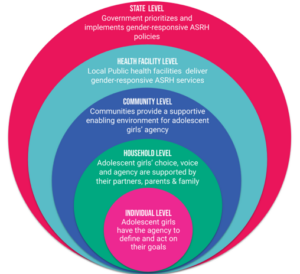Adolescents encounter many obstacles to safe sex and pregnancy prevention. Along with issues of access, cost, fear of side effects, compromised privacy and confidentiality, bias of providers, and socio-cultural and religious concerns – there are myths and misconceptions to contraceptive use. Myths and misconceptions without validity are a major contribution to non-use, discontinuation, and low uptake of modern contraceptives.
We asked girls across Nigeria, Ethiopia and Kenya what was keeping them from using modern contraceptives. Here is what they told us:
Myth: If I stand up or wash myself after having sex, I won’t get pregnant
Myth Buster: False! All it takes to get pregnant is a sperm, which is tiny and invisible. After getting up to wash, there is still a very high risk of getting pregnant.
Myth: Pregnancy prevention methods (contraceptives) are only for married women and moms
Myth Buster: False! Pregnancy prevention methods can be used by every girl or woman who has reached reproductive age and begun ovulation – whether married or not.
Myth: I am too young to take up a method to prevent pregnancy
Myth Buster: False! Once a girl or woman starts ovulating, she is able get pregnant if she has unprotected sex, thus should use a pregnancy prevention method, regardless of her age.
Myth: I won’t be able to get pregnant after I stop using a method
Myth Buster: False! There are temporary methods of preventing unplanned pregnancies. This means that fertility is suspended only while the method is used and you will be able to get pregnant again when it is discontinued. Methods have varying periods of protection from pregnancy.
Myth: Girls who use modern Pregnancy Prevention methods, such as Pills are Promiscuous
Myth Buster: False! Using modern methods to prevent unplanned pregnancy is taking responsibility for your life. Using contraceptives is a smart decision to help you achieve the future you envision.
Myths: Modern contraceptive methods can hurt my body
Myth Buster: False! Modern methods of preventing pregnancy are safe and effective. They do have varying side effects, like every other medication. There is a method for everyone. Choose the one that is best for you.
Myth: Drinking sprite and lime after sex can protect against getting pregnant
Myth Buster: False! Concoctions such as sprite and lime or spirits have no proven effect on preventing pregnancy. They do have risk of causing damage to the organs of the body.
Efforts to address sexual and reproductive health myths and misperceptions must employ multifaceted approaches at both individual and community levels. Across A360 geographies, the project has found what works – engaging key influencers and community gatekeepers:
- Girls:
- A360 mobilizers and Health extension workers encourage girls to speak directly with providers for accurate information about their reproductive health.
- In Nigeria during sessions – like Life, Family and Heath (LFH) or Life, Love and Health (LLH) classes and Binti Shupavu clinics in Kenya – misconceptions are debunked through educational presentations and dialogue held in environments where girls feel safe to ask questions about their sexual health, show interest in contraceptive options and share their experiences.
- Mothers of adolescent girls:
- A360 engages mothers of girls in targeted group sessions. In Nigeria these are called “Mom sessions” and in Kenya “Bintu Shupavu Stories”. These sessions engage mothers or females closest to the girls to address reproductive health misinformation and encourage their support for the decisions girls make about their bodies and futures.
- Community/religious leaders:
- A360 recruits and trains community and religious leaders as allies of young women and their reproductive health. These key influencers and community gatekeepers conduct sessions with other key influencers and gatekeepers in their community (while having health providers in attendance for clarity on any health concerns) to reach parents or other key influencers of young girls with the facts. This helps create enabling environments for girls as they access sexual and reproductive health services.
- Providers:
- A360 equips providers with the skills and capacity to counsel girls using the counseling for choice methodology (C4C), ensuring girls have agency in determining their reproductive healthcare and acquiring contraceptive methods that fit their needs.
The A360 project is currently testing contraception “fun facts” discussions through engagement sessions with key influencers, community gatekeepers and girls – to debunk myths in an exciting way.
Learn more about A360’s girl-centered contraceptive programs here: https://a360learninghub.org/





